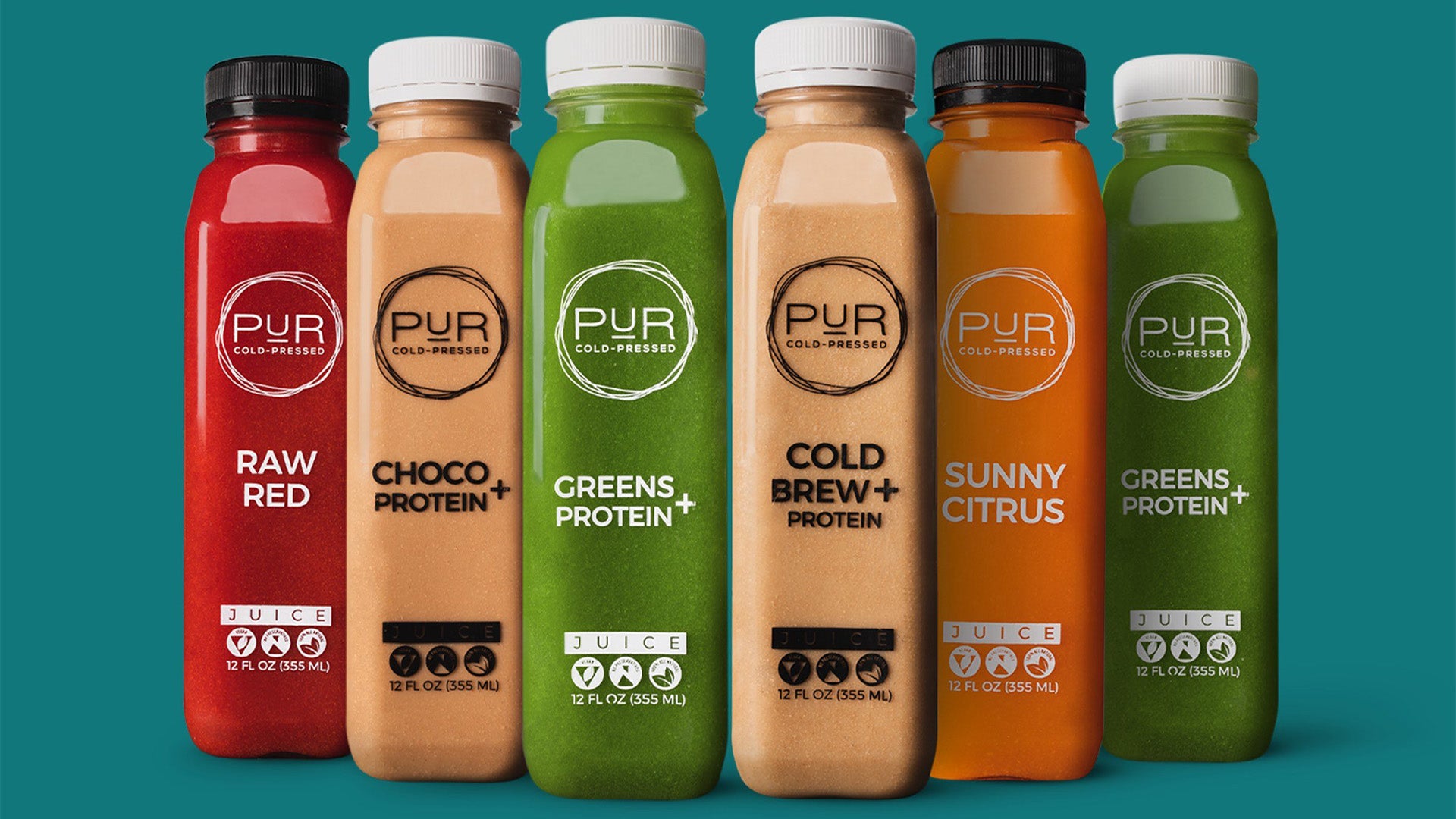
There’s nothing quite as important as your gut to your overall well-being.
Your digestive system plays a crucial role in so many parts of your overall health. Our food supplies us with the nutrients we need to propel ourselves forward. If our digestion experiences a disruption, many different health areas could also suffer.
Let’s dive into why your gut health is important, what it is, and the foods you might want to include and exclude to encourage healthy gut bacteria.
What Is Gut Health?
Your digestive health is more complicated than you might think. It refers to not just the physical condition of the organs in your digestive tract but also the condition of your microbiome.
Gut health can be broken up into two categories: your actual digestive system and the trillions of microbes living in your gastrointestinal tract. Those microbes are what make up your microbiome.
What Is the Digestive System?
As you know, the body has a few major systems to help it function.
The digestive system is a series of organs that helps our body with a few essential functions:
- Extracting nutrients from our diet
- Expelling waste
All the dietary buzzwords you hear about from your nutritionist or dietician — carbohydrates or carbs, proteins, fiber, vitamins, and so on — are processed by the organs in our digestive system.
From your mouth to your rear, a whole system of organs works like an assembly to get your body what it needs from the food and fluids you consume. A few organs make up the digestive system, like the esophagus and the gallbladder.
But when it comes to the gut, we typically mean the small intestine and the large intestine, or colon.
Small Intestine
After our food breaks down in the stomach, it makes its first venture into the gut by entering the small intestine.
The small intestine consists of the duodenum, the jejunum, and the ileum.
This part of the gut is important to our digestive system because it is where the nutrients from our food are finally absorbed. The stomach digests and breaks down what foodstuff it can so that the small intestine can extract the nutrients.
Large Intestine
Curiously the large intestine is shorter than the small intestine; it’s about five feet long, while the small intestine is almost 22 feet.
Aside from its length, its primary difference from the small intestine is its function. In the large intestine, our food becomes the stool we later pass in our bowel movements.
The large intestine does handle some extraction. This organ absorbs the fluids from foods, which can assist in forming a healthier stool. Further digestion and nutrient absorption may occur here in the large intestine.
The caecum or cecum is a part of the large intestine that connects the small and large intestines. This pouch is one of our gut microbiome’s most prominent locations.
Gut Microbiome
We are only just beginning to understand the potential of the microbiome. A growing body of research indicates that it isn’t just an integral part of a healthy gut but our overall health.
The microbiome refers to an ecosystem of microbiota that lives throughout the gut. Bacteria, fungi, and other microorganisms call our gastrointestinal tract home. They may be equal to the trillions of stars in our galaxy.
How Does the Microbiome Affect Gut Health?
We have a symbiotic relationship with the microbes in our gut. This vast and diverse colony of organisms helps us just as much as we help them. Let’s look at how the microbiome works in our digestive system.
Aids Digestion
Foods that we cannot digest in the stomach may be able to be broken down by the hungry microbes in our gut. Hard-to-digest foods and nutrients, like certain fibers or carbohydrates, can find their way past the small intestine. This is where the good bacteria in our gut finish the job with digestive enzymes.
What our digestive system fails to break down on its own, including potentially toxic compounds, can be broken down by beneficial bacteria. These helpful bacteria include lactobacillus and bifidobacteria. But these beneficial bacteria don’t just break down what we can’t; they can give us some key nutrients in return.
Processes Nutrients
In a true symbiotic fashion, the microbiota in our gut returns the favor by supplying us with important nutrients. Some of these nutrients may be difficult to find elsewhere.
But not all gut bacteria are helpful. Some of these bacteria love carbs and added sugar, something we may all have in common. Too much of those foods can cause an increase in harmful bacteria — and it can make weight loss harder.
Furthermore, the microbiome can synthesize a wide range of vitamins. Vitamin K, B vitamins like vitamin B12, and even amino acids may be created by these bacteria.
The microbiome may even support our immune system. Understanding the role of the microbiome in overall health can leave you wondering how you can best support it. Let’s take a look.
How Can You Maintain the Microbiome?
While it may be strange, your gut microbiome is a living ecosystem. As living organisms, your gut microbiota needs sustenance and nourishment like any other.
Probiotics are active cultures of bacteria in a variety of foods. The bacteria in these foods can help sustain the healthy growth of the beneficial bacteria in our gut.
Certain fibers or prebiotics are fibers that are broken down by the microbes in our gut to feed the helpful bacteria.
Whole foods, including plenty of fruits, veggies, and whole grains like quinoa, can help support a healthy microbiome.
What Are the Effects of Poor Gut Health?
When you make good food choices and maintain a healthy lifestyle, your small intestine, large intestine, and microbiome can all perform their functions without issues.
However, our gut health can become disrupted. In some cases, we aren’t sure why that happens, though immune system sensitivity and a poor microbiome may contribute to temporary or chronic diseases and other medical conditions.
Gastrointestinal disorders are in two categories: structural GI diseases and functional GI diseases.
Structural GI Diseases
These disruptions can result from physical disruptions to the structure of our digestive tract. Structural GI diseases are more difficult to correct and may require surgery or regular medication.
Structural GI diseases include:
- Inflammatory bowel disease
- Colon cancer
- Hemorrhoids
Functional GI Diseases
Functional GI diseases arise from different causes. In these cases, the GI tract is physically fine. However, the functionality of our digestive organs is disrupted. This type of disruption can stem from a few causes, but more often than not, our diet is the biggest contributor to functional GI diseases.
Here are a few kinds of functional GI diseases:
- Irritable bowel syndrome (IBS)
- Chronic bloating
- Constipation
- Diarrhea
We have far more control over the onset of functional GI diseases than structural issues because we can make better choices regarding our diet.
Here are some foods you may want to include and some you might want to limit or avoid for optimal gut health.
What Are the Worst Foods for Gut Health?
Everyone’s gut is different, but a few foods may be the culprit of an unbalanced gut microbiome.
Fried Foods
Fried foods might taste great but aren’t so great for our gut. Fried fats are packed with trans fat and saturated fats, the kinds of fat that can cause serious disruption to our gut. These fats are harder to digest, both for the digestive system and microorganisms of the microbiome.
The strain they can put on your gut may lead to digestive disruptions and poor gut health. Too many fried foods can cause more harmful gut bacteria to grow and, over time, could contribute to other health conditions, like cholesterol and blood pressure issues.
Red Meat
Red meat refers to any meat that comes from a mammal. Think beef, pork, lamb, and venison. While these meat sources can offer up some foods we love, like bacon or burgers, the microbes in our gut don’t like them so much.
Red meats are rich in L-carnitine, a compound that can negatively alter the balance in our microbiome. Like fried food, too much of a good thing can lead to a growth in gut bacteria that aren’t so beneficial to our body.
Alcoholic Beverages
Alcohol comes with a slew of negative effects on our health. Our microbiome isn’t a fan either.
Consumption of alcohol in excess has been associated with dysbiosis, a condition in which the bacteria in the gut enter into a state of imbalance. As we’ve already learned, that imbalance can lead to an abundance of harmful gut bacteria and potential ill effects to go with it.
What Are the Best Foods for Gut Health?
While there are many good options for gut-supporting foods, we’ve compiled a list of some of the best.
Yogurt
Yogurt can be a gut-friendly food with active bacteria cultures and minimal added sugar. The bacteria in yogurt can help supplement the growth of more beneficial bacteria in our gut.
Like yogurt, kefir is also a probiotic with an active culture of bacteria. It, too, can help support digestive function.
Kimchi and Sauerkraut
Fermented foods like kimchi and sauerkraut can be great for our gut. The process of fermentation starts the growth of active bacteria cultures that break down the food—in this case, kimchi and sauerkraut cabbage.
It doesn’t just add to the rich flavor; these probiotic-rich foods are a favorite for your gut microbiota.
Legumes
Beans, lentils, and other legumes are high-fiber. Fiber can help our GI tract more effectively keep things moving along.
Furthermore, the prebiotic fiber in legumes is a great food source for our gut.
Fruit and Vegetable Juice
Juice is a great way to get your daily serving of fruit and veggies and potentially support your gut health.
Studies have shown a clear, positive relationship between microbiome health and fruit and vegetable juice consumption.
Looking for more juice in your diet? Check out our selection of nutrient-dense, gut-supporting juices.
Here are some other foods that may promote gut health:
- Tempeh
- Kombucha
- Artichokes
- Miso
- Whole grains
- Raspberries
- Blueberries
- Soybeans
- Sweet potatoes
How Can I Cleanse My Way To Better Gut Health?
Juice cleanses can help give your gut bacteria the nutrients they love — all while allowing your digestive system to get a much-needed reset.
Learn more about our unique juicing approach and how it can help achieve all your wellness goals.
Sources:
Digestive System | Cleveland Clinic
Large Intestine (Colon) | Cleveland Clinic
Small Intestine | Cleveland Clinic
Gastrointestinal Diseases | Cleveland Clinic
Health benefit of Vegetable and Fruit-based Diet: Role of Microbiome | NIH
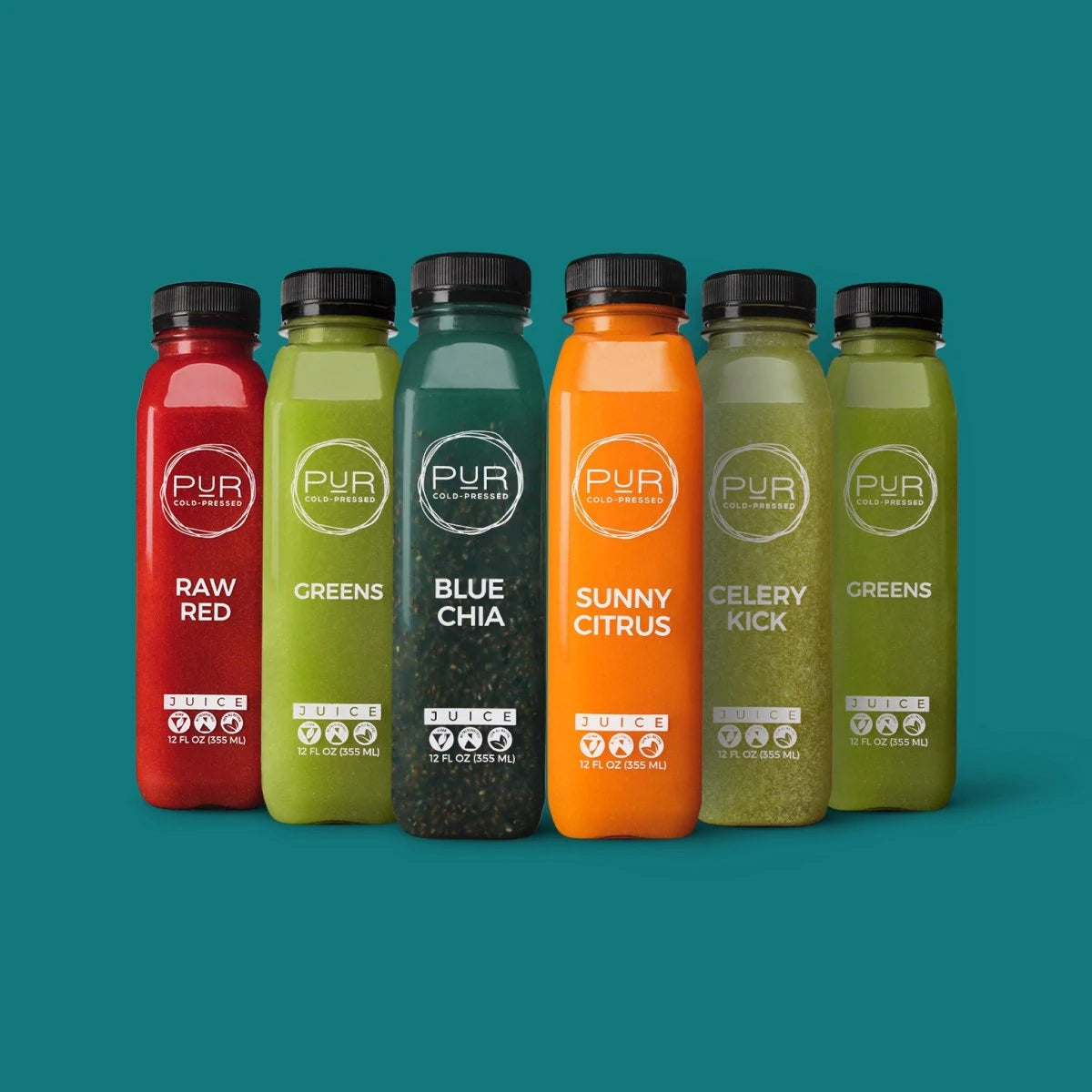
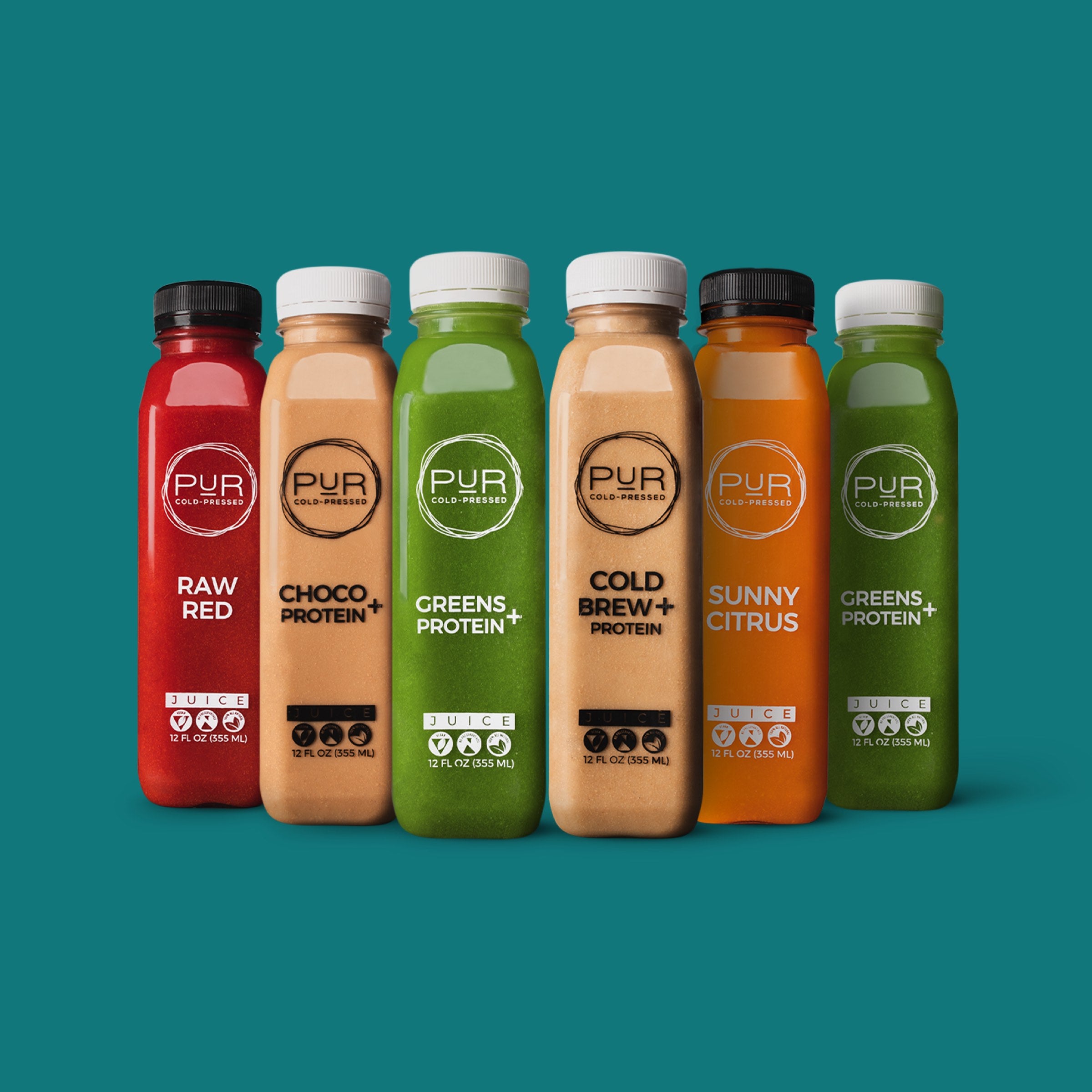
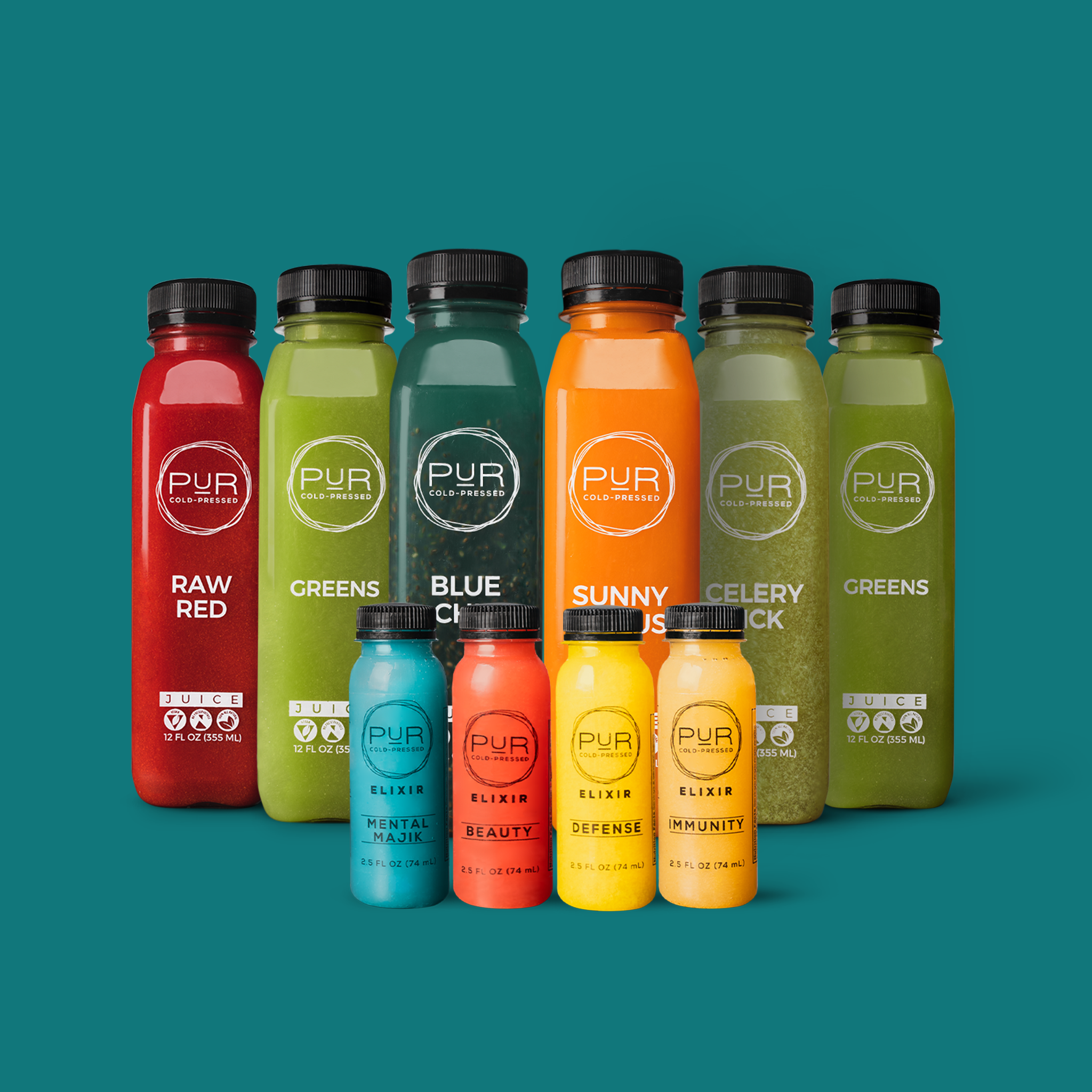
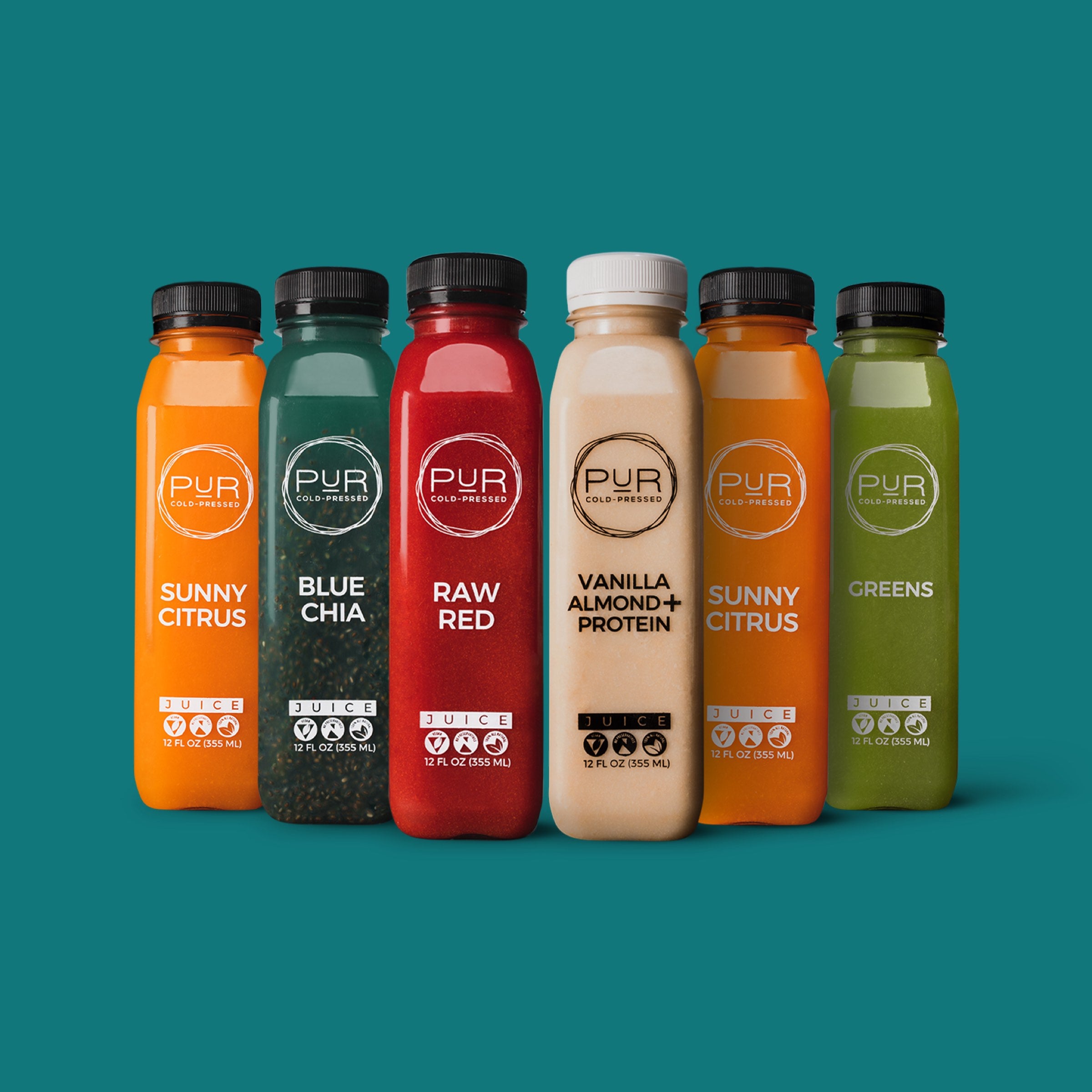
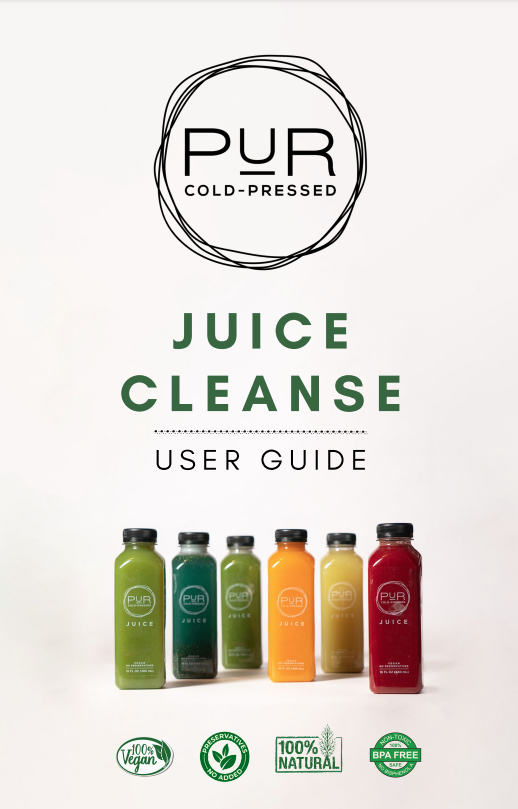
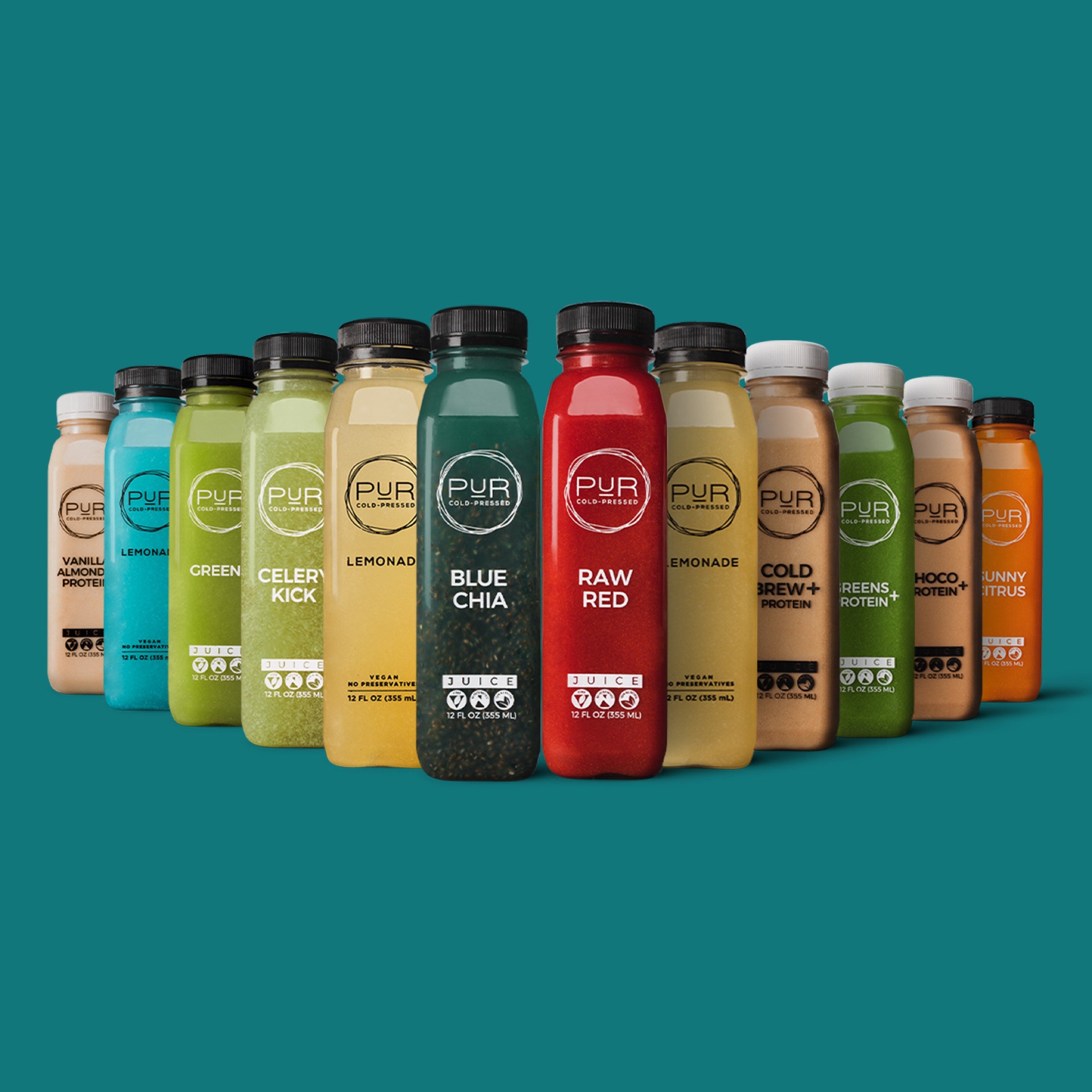

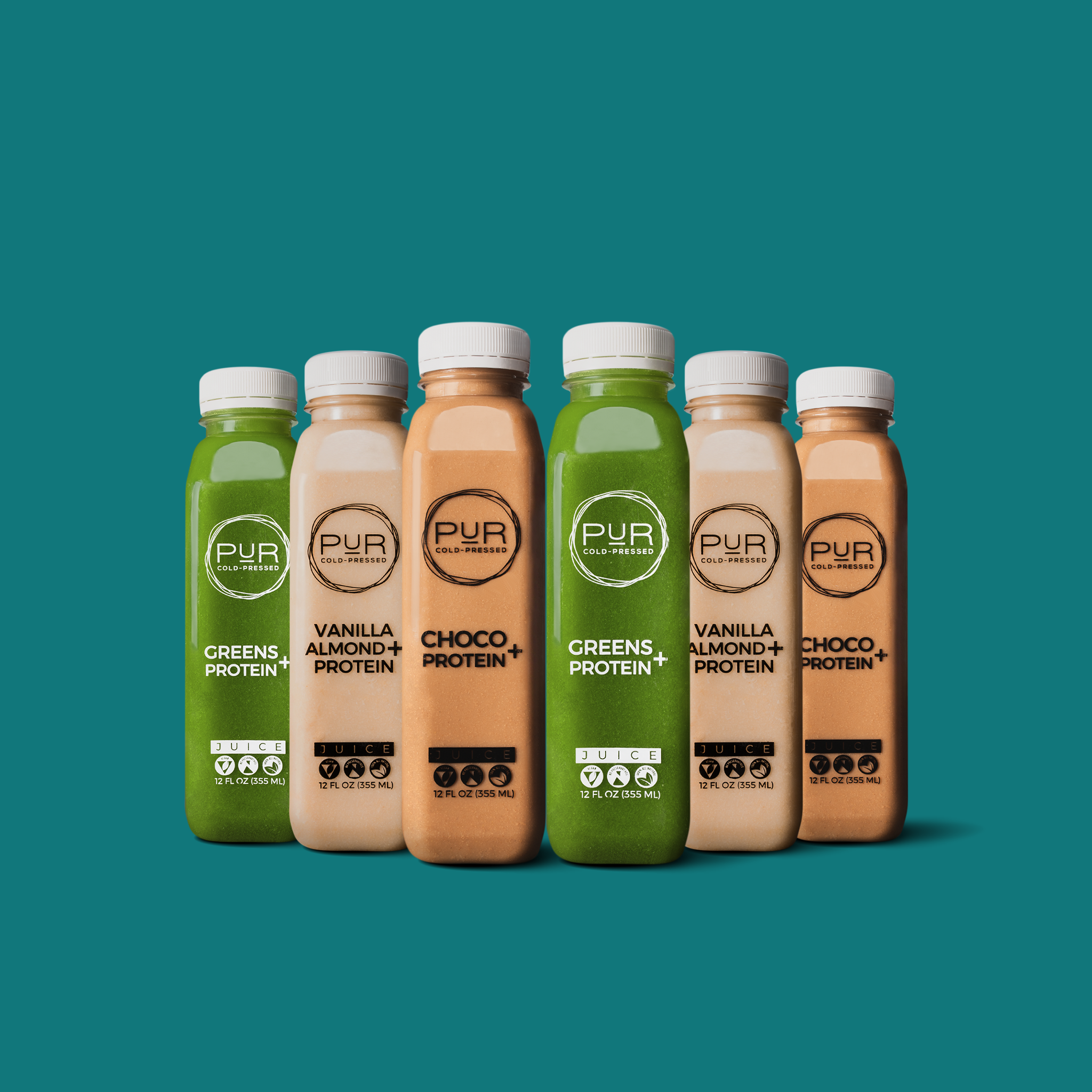
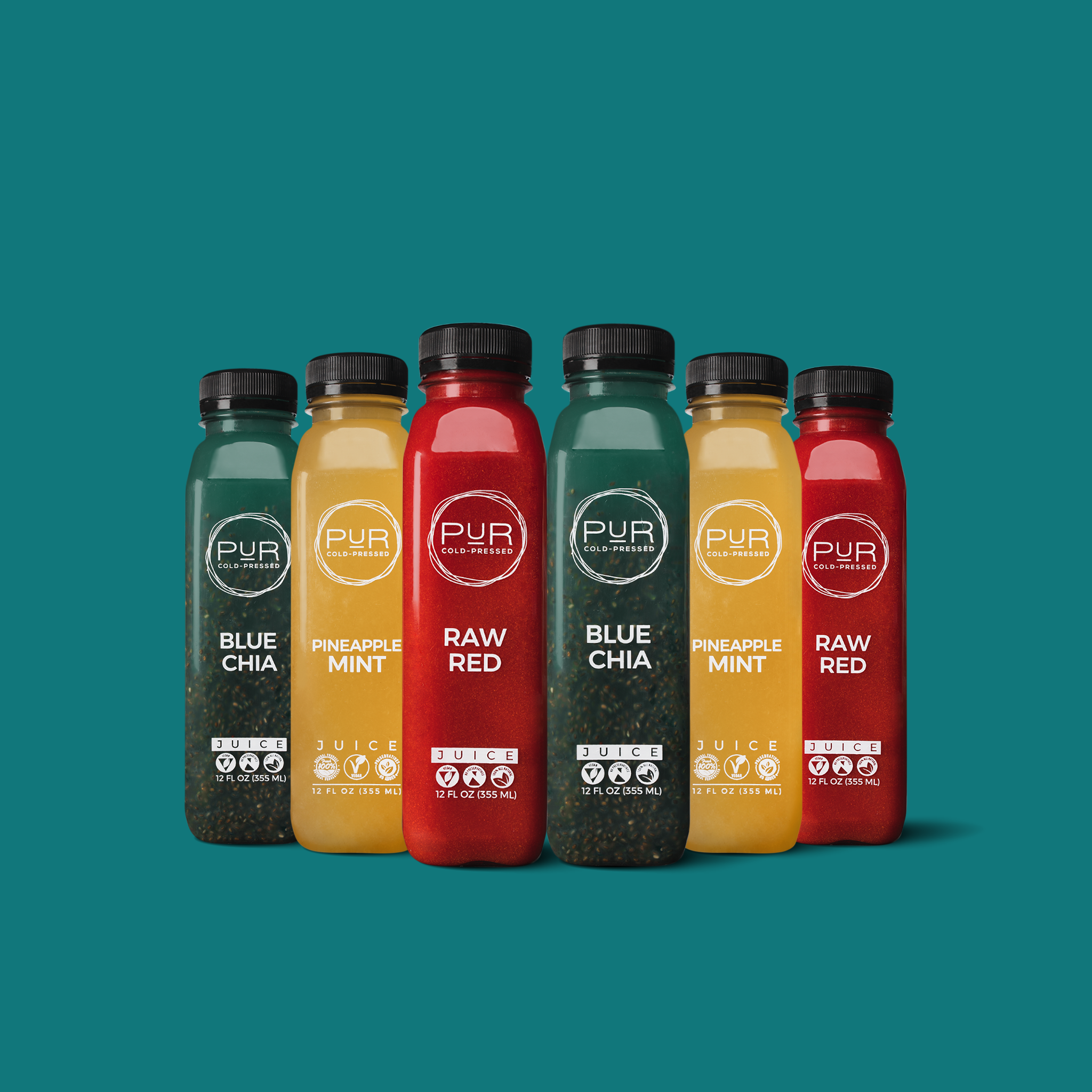
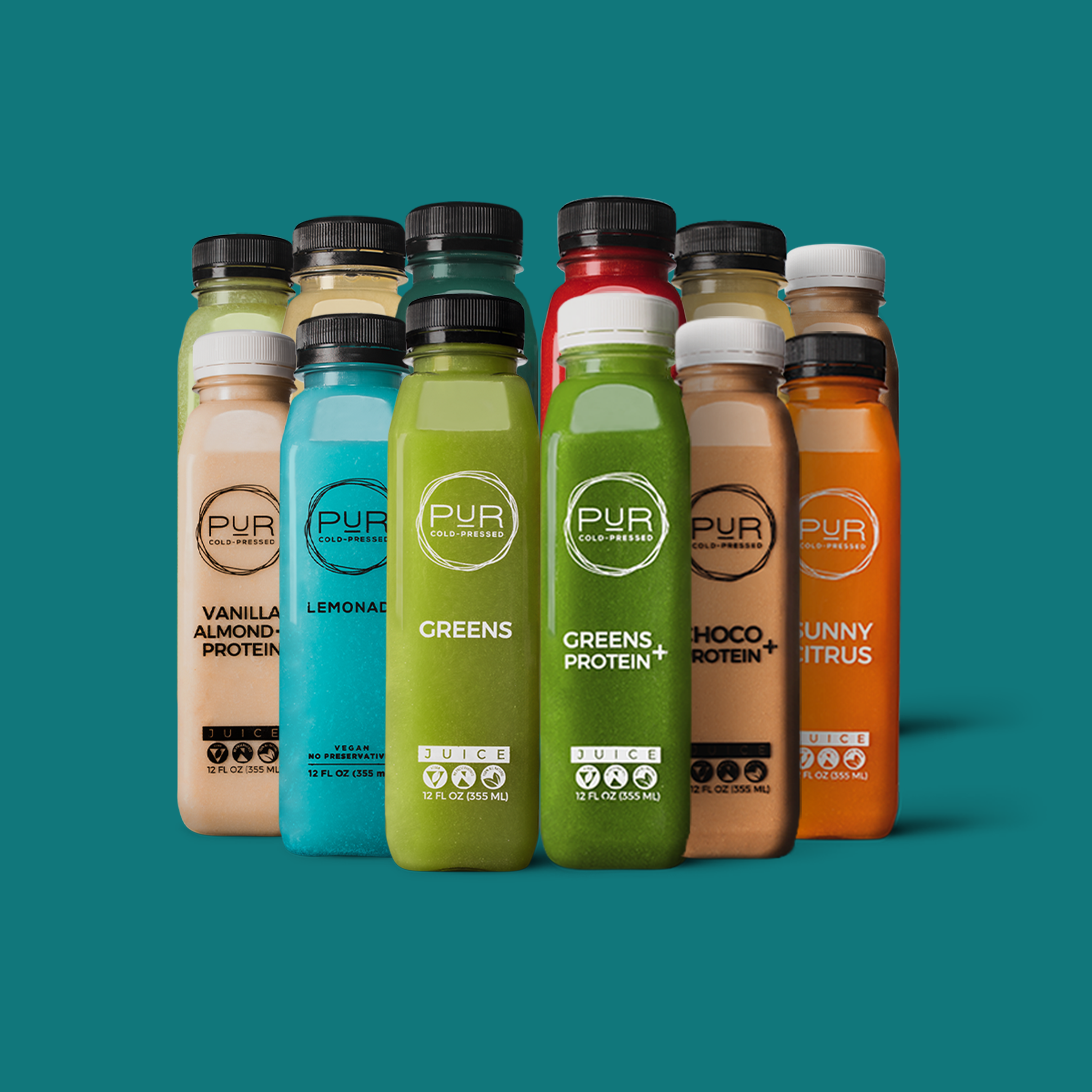
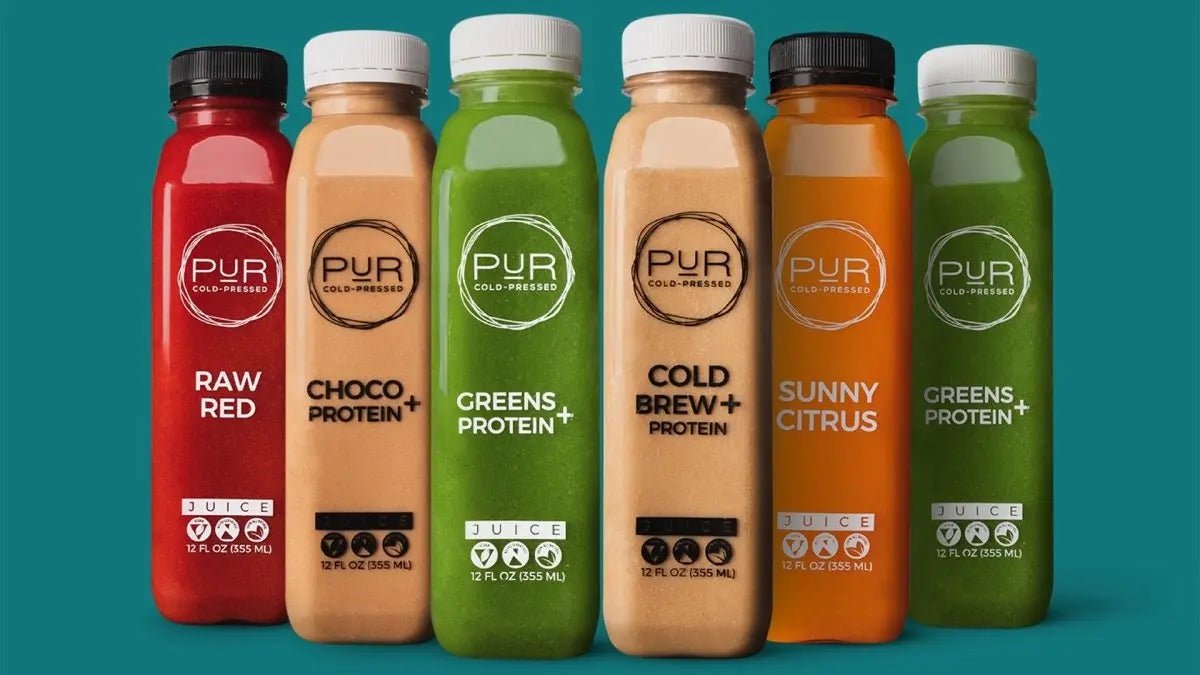
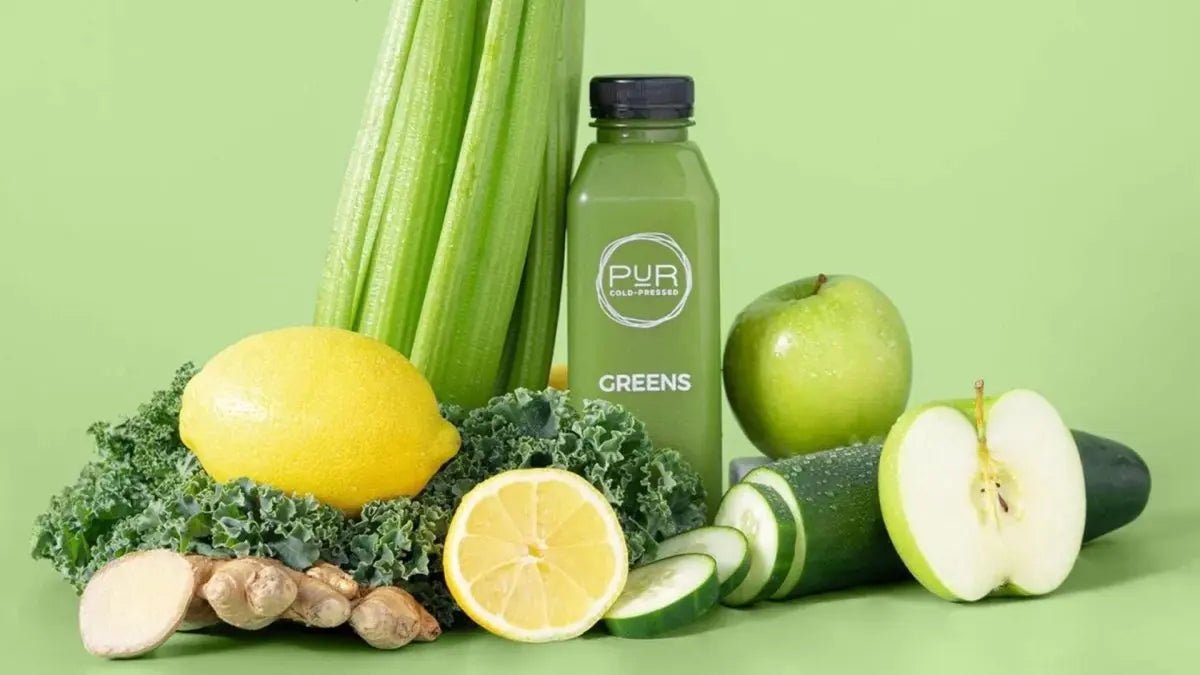
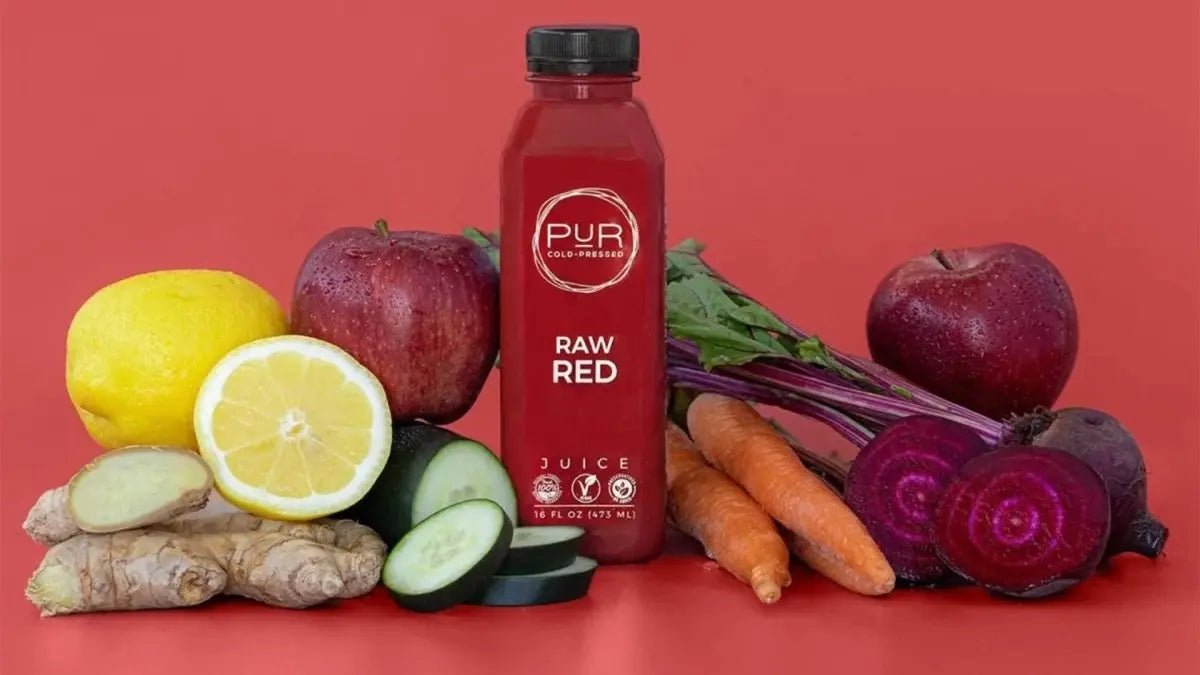
Leave a comment
All comments are moderated before being published.
This site is protected by hCaptcha and the hCaptcha Privacy Policy and Terms of Service apply.